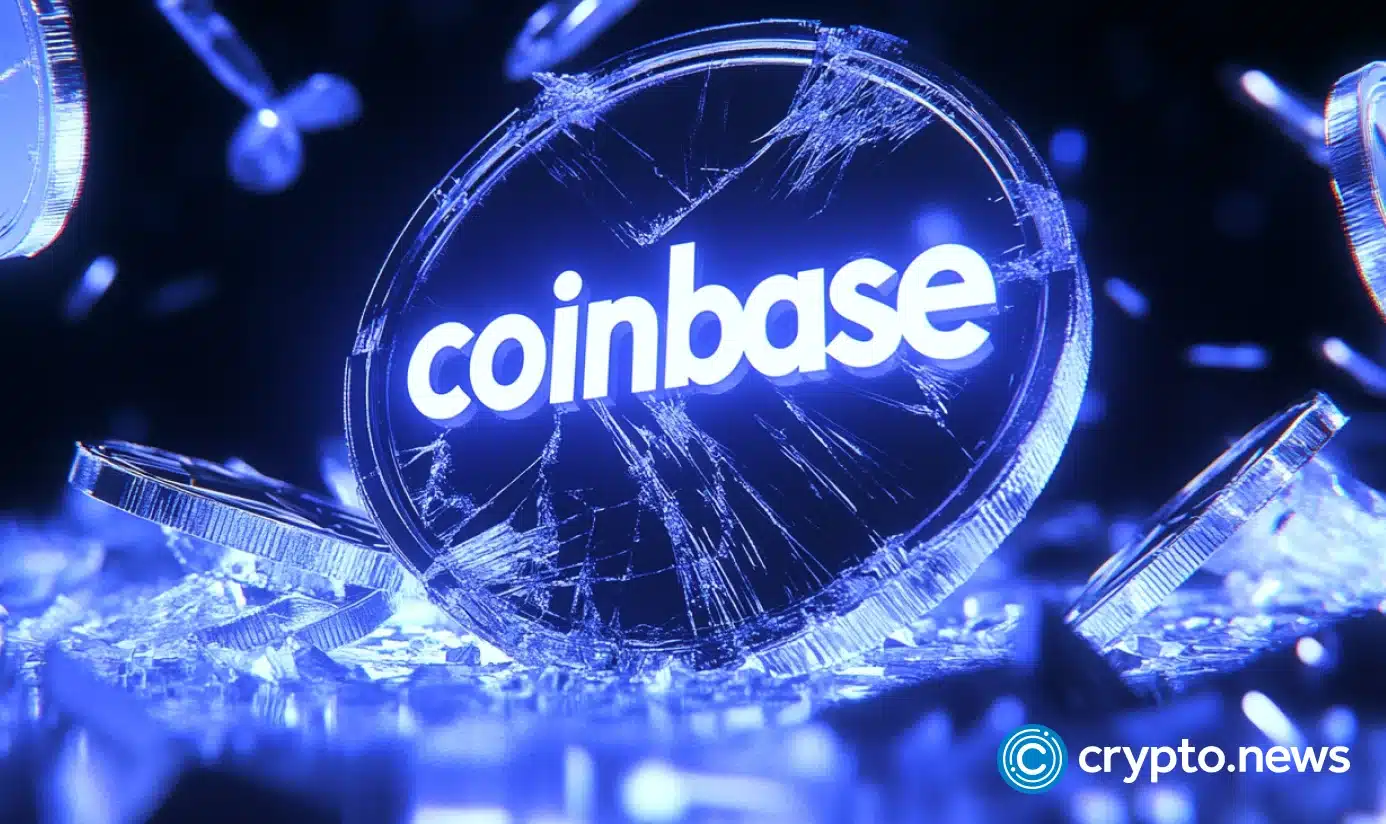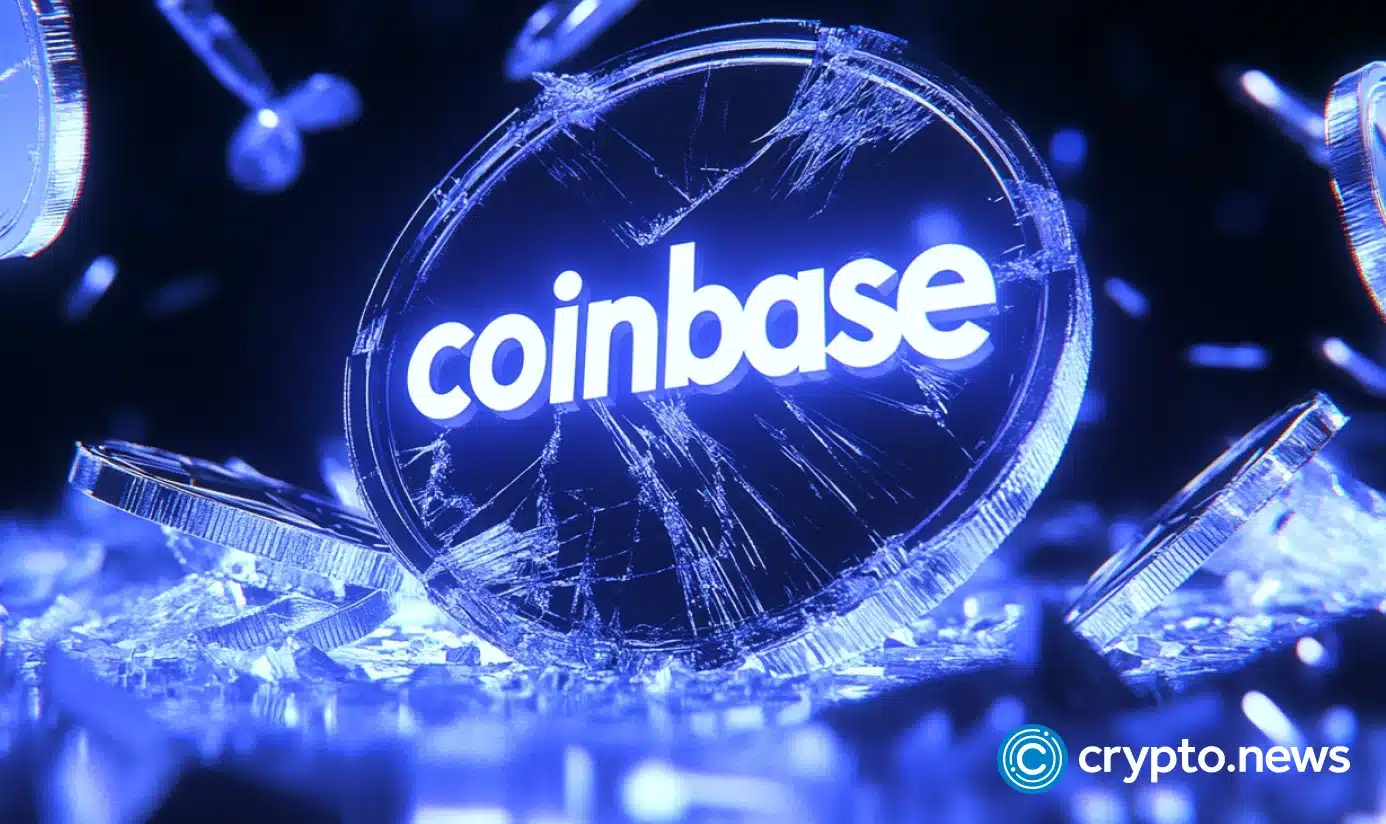coinbase
Coinbase warns Gen Z about growing online threats
Published
3 months agoon
By
admin

Coinbase is raising awareness about the rise of online scams targeting younger users, particularly Gen Z.
In a blog post published on Oct. 8, Coinbase outlined four online threats Gen Z should be aware of, including social media fraud, romance scams, fake websites, and recovery schemes.
Coinbase emphasized that crypto users must take personal responsibility for securing their assets. Unlike traditional banking, where institutions provide a level of security, crypto owners control their assets directly, making them both their own safeguard and biggest security risk.
Social media scams
One of the major scams Coinbase warned about involves social media platforms like Instagram and TikTok, where fraudsters create fake profiles or impersonate well-known figures.
Scammers often introduce seemingly legitimate investment opportunities to unsuspecting users, but these offers are rarely genuine. Coinbase advises users to be cautious of unsolicited messages from strangers promoting crypto investments.
A recent example of this scam took place in Vietnam, where five suspects involved in a crypto fraud network used social media to build fake romantic relationships and lure victims into investing in a fraudulent platform.
The scammers defrauded victims of over 17.6 billion Vietnamese dong ($700,000) through their scheme.
Romance scams and fake websites
Another growing threat Coinbase mentioned is romance scams, often called pig butchering scams.
Romance scams involve fraudsters befriending victims under the pretense of a potential love interest. These scammers pretend to form personal connections to gain victims’ trust and then exploit them financially. These schemes often occur on dating apps or social media platforms.
Scammers also use fake websites to trick victims into providing personal information or sending funds. Many of these sites mimic legitimate companies but have minor differences in their URLs.
Similarly, on Oct. 3, a U.S. citizen filed a lawsuit after losing $2.1 million in Bitcoin (BTC) due to a pig butchering scam involving fake crypto exchange websites. Just as Coinbase warned, the scammers operating from Southeast Asia used these fraudulent sites to simulate trading and steal funds from the victim.
Boosting awareness and reporting scams
In 2023, over 67,000 online scams were reported, per Coinbase, with the median loss reaching $3,800.
Coinbase stressed that raising awareness and reporting suspicious activity can help prevent others from falling victim to similar scams. The company encourages users to report scams to law enforcement and platforms like Coinbase to aid in the fight against cybercrime.
With crypto ownership comes responsibility, and Coinbase’s message to Gen Z is clear: Stay vigilant, know the risks, and help protect the community from fraud.
Source link
You may like
Bitcoin
Bitcoin (BTC) Price Slumps to $92,000 as Long-Term Holders Keep Taking Profit
Published
2 days agoon
December 30, 2024By
admin
Crypto prices are experiencing a rocky Monday due to poor U.S. macroeconomic data and rampant profit-taking.
Bitcoin (BTC) has dropped 1.8% in the past 24 hours to $91,800, a price not seen since Dec. 5, the day it broke through $100,000 for the first time. The largest cryptocurrency has fallen more than 14% from its Dec. 17 record of $108,278.
Ether (ETH) has lost less, falling 0.7% to $3,320, though it’s now 17% below its December highs, and still has not surpassed the record $4,820 it hit in 2021. Solana (SOL) is also proving a little stronger than bitcoin, with the SOL/BTC ratio up 0.35% today.
The CoinDesk 20 — an index of the top 20 cryptocurrencies by market capitalization, excluding stablecoins, memecoins and exchange coins — is also in the red, sliding 3.74%. Ripple (XRP) and Stellar (XRM) have taken the biggest hits, down 6% and 6.3% respectively, while the most resilient coin besides ether has been litecoin (LTC), which is 1.9% lower.
Stocks of crypto-related companies also took a hit. MicroStrategy (MSTR) and Coinbase (COIN) fell 7% and 5.3%, respectively and major bitcoin mining firms like MARA Holdings (MARA) and Riot Platforms (RIOT) have dropped more than 7%.
The selling pressure is partially caused by investors cashing out after bitcoin shot up more than 117% this year. Profit-taking currently exceeds $1.2 billion on a seven-day moving average, and while that is significantly less than the Dec. 11 peak of $4.0 billion, it’s still much more than usual. Additionally, the lion’s share of profits is being taken by investors who have held bitcoin for many years.

Macroeconomics are also weighing on the market, with the U.S. Chicago PMI — which measures the performance of the manufacturing and non-manufacturing sector in the Chicago area — flashing its lowest reading since May, suggesting an economic slowdown is underway.
Uncertainty around the Federal Reserve’s interest-rate policy going into 2025 isn’t helping, since the U.S. central bank has signaled it will pause rate cuts until at least March. The inauguration of President-elect Donald Trump, slated for Jan. 20, may also be playing a role. The S&P 500, Nasdaq, and Dow Jones are down more than 1%.
“The market exceeded expectations in 2024, but signs of exhaustion signaled the need for consolidation,” Joe Carlasare, partner at Amundsen Davis, told CoinDesk. “Looking ahead to 2025, I’m optimistic but expect the path to diverge from consensus, as markets often do. Bitcoin’s adoption continues to grow, and I anticipate it will generally move in line with traditional markets. If the U.S. avoids a significant growth slowdown, bitcoin should perform well, though the ride may be bumpier than in 2024.”
Source link
coinbase
Coinbase CLO shares data on crypto hedge funds debanking, demands for answers
Published
6 days agoon
December 26, 2024By
admin

The Coinbase Chief Legal Officer Paul Grewal took to X to demand answers after learning from the AIMA survey that 75% of crypto hedge funds face issues with accessing basic banking services. None of the traditional alternative investment managers (e.g., real estate) experienced similar troubles with the banks.
The Grewal’s X post raises questions that have already been circulating in the media for quite a while. You have probably heard of Operation Choke Point 2.0 or read about the redacted documents published by Coinbase in which the Federal Deposit Insurance Corporation openly asks banks to pause all the operations associated with cryptocurrencies. The Alternative Investment Management Association (AIMA) survey report furnishes these concerns with new statistical grounds. Alongside Grewal, AIMA calls for action in the press release.
Why would 3/4 of 160 crypto hedge funds report issues with basic banking services over 3 years when ZERO were reported by 20 other alternative investors surveyed? Why would most be told their bank is dropping them? Good on @AIMA_org for sharing this data– we need answers, now.
— paulgrewal.eth (@iampaulgrewal) December 20, 2024
The survey was held in October, and its results are concerning. Before we move to the key takeaways from the press release, we should stress that, according to AIMA, debunking is a problem exclusive to crypto hedge funds. AIMA surveyed 20 other alternative investors who were not dealing with cryptocurrencies, and none of them had issues while receiving basic banking services.
The key takeaways from the AIMA press release
The key points from the AIMA press release are as follows:
- AIMA surveyed 160 crypto hedge funds. Three-fourths of them have contested facing troubles while accessing or growing standard banking services in the last three years.
- The troubles may include complete service denial. Only 2% of the hedge funds whose relationships were about to be terminated received a formal explanation for that. The named reason was that the banks were limiting crypto clients.
- According to AIMA, debanking of crypto businesses (the so-called “Operation Choke Point 2.0”) undermines the operational efficiency of the U.S. crypto sector, negatively impacts investors’ confidence, and harms the acquisition of the skilled professionals.
John D’Agostino, a co-chair of the AIMA Digital Assets Group, concludes that the banking challenges are not a niche problem as they burden the overall development of the U.S. economy and innovation.
The complete report is available here.
AIMA calls for change, Trump vows to terminate Operation Choke Point 2.0
AIMA calls for a collaborative effort to address the challenges faced by the cryptocurrency business. The association sees the solution in working closely with the new administration, the leaders of the banking sphere, and policymakers.
During the 2024 Presidential campaign, Trump, who was demonstrating his animosity towards the original Operation Choke Point started during Obama’s White House tenure, declared that he was going to shut down Operation Choke Point 2.0 as soon as he gets elected.
However, as the statements made by Jerome Powell during the FOMC event indicate, Trump will have to deal with various cryptocurrency sceptics, including ones with massive influences and high positions.
Wait a minute! Isn’t Operation Choke Point 2.0 just a conspiracy theory?
Let’s begin with a bit of history. Unleashed during the Obama presidency, Operation Choke Point was the Department of Justice’s secretive program allegedly aimed at denying banking services to fraudsters of all kinds, including those who traded ammunition, pornography, drug paraphernalia, etc. The idea was pretty simple: if we uncompromisingly cut the access to financial operations for fraudsters, they won’t be able to break the law, and many crimes will be prevented.
Soon, the operation achieved notoriety as, due to a lack of clear limitations, debanking turned into a weapon against political enemies instead of protecting society from fraud and crime. In 2013, the program critics came to believe that fighting the political opponents was the prime goal of Operation Choke Point. During the 2016 Presidential campaign, Donald Trump promised to eliminate this operation.
While the Obama-era Operation Choke Point was deployed officially, the existence of the modern-day Operation Choke Point 2.0 is yet to be confirmed. Nevertheless, the leaked documents and cases like the ones described in the AIMA press release make people think that an operation similar to Operation Choke Point exists nowadays and targets cryptocurrency companies. The operation is in effect, disregarding its official name. Although the FDIC seems to be the main actor in the operation, there are other disjointed institutions pushing banks to limit services for clients working in the crypto sector.
Some experts covering this “operation” expressed an opinion that the FDIC attack on the crypto industry is the response to the turbulent events that shook the crypto market in 2022. It includes the FTX collapse, TerraUSD losing its peg and crashing altogether, Celsius and Voyager freezing the users’ accounts, etc.
However, let’s look closely at the documents released by Coinbase in December 2024. We will find out that the FDIC was pressing banks to stop working with cryptocurrency companies before these events. Although the cases mentioned above are not the result of the FDIC actions, they took place in circumstances where banks were already forced to pause service for the crypto clients.
Possible implications of Operation Choke Point 2.0
Banks don’t have a clear checklist to determine if the client can access services. In a situation where banks cannot decide on the risk rate they are willing to work at, they may prefer to block services for the clients dealing with cryptocurrency to avoid a backlash from the FDIC.
AIMA has already voiced the possible implications. By far, pressure on banks and a lack of clear instructions will hurdle innovation in the U.S. and make the country unattractive for companies from the cryptocurrency sector.
Source link
coinbase
Coinbase refutes ‘baseless’ BiT Global wBTC suit
Published
2 weeks agoon
December 17, 2024By
admin

No law compels Coinbase to “compromise the integrity of its platform” by doing business with Justin Sun-tied BiT Global, the U.S. crypto exchange wrote.
Coinbase asked a U.S. court to deny BiT Global’s lawsuit in Northern California, which seeks $1 billion in relief and a temporary restraining order on wrapped Bitcoin’s (wBTC)’s delisting.
The Justin Sun-affiliated BiT Global sued Coinbase on Dec. 13 for planning to remove the wrapped Bitcoin (BTC) asset from its U.S.-based exchange. BiT Global claimed delisting wBTC was illegal, would cause irreparable harm to the token’s economics, and was unjustified as Coinbase listed unserious cryptocurrencies like meme coins.
Also, launching cbBTC breached antitrust laws and threatened to create a Coinbase-controlled monopoly in the tokenized Bitcoin marketplace.
The crypto exchange argued that California’s Unfair Competition Law was inapplicable. DefiLlama confirmed that cbBTC ranked outside the top 10 tokenized BTC assets by market capitalization.
Coinbase has the right to choose whom to do business with, and no law requires it to allow bad actors or suspected bad actors onto its exchange… Coinbase does not have anything approaching monopoly power, and because its decision to delist wBTC was proper and justified based on the careful review it undertook and the unacceptable risk of doing business with an entity associated with Mr. Sun.
Coinbase response to BiT Global lawsuit
According to the December 17 court filing, material changes to wBTC’s stewardship, particularly Justin Sun’s majority control of the Bitcoin reserves, prompted Coinbase and other entities to reconsider their support for the asset.
The Securities and Exchange Commission charged Sun and three of his wholly owned companies with federal violations. Additionally, the FBI reportedly opened an inquiry regarding potential terror financing involving Sun.
The U.S. Department of Justice has not indicted Sun by publishing time, neither have authorities issued any arrest warrants for the Tron (TRX) founder.
Coinbase stated that its new wBTC risk assessments, in line with company listing standards, raised red flags, primarily due to Sun’s involvement. The exchange described its decision as “common sense” and necessary to protect its customers. The company also emphasized that delisting wBTC would not impact the token’s overall on-chain activity, which largely takes place on other platforms.
Nor can BiT claim harm, let alone irreparable harm, from being delisted from an exchange where less than 1% of transactions involving wBTC are made. Perhaps that is why BiT sat on its claims for nearly a month before filing suit, belying any urgency for relief.
The U.S. crypto titan asked the California Court to rule against BiT Global’s TRO request and $1 billion relief package, due to the firm’s ties to an allegedly indictable individual and fabricated emergency regarding wBTC.
We’ve filed our response to BiT Global’s effort to stop our delisting of wBTC before any discovery or even formal response to their bogus claims. We lay out why this lawsuit lacks any semblance of merit and why their request for a TRO should be denied. You can read it all for…
— paulgrewal.eth (@iampaulgrewal) December 17, 2024
Source link
Recounting Ethiopia’s Bitcoin Developments In 2024
These leading 6 cryptos are poised to explode
A Look At Historical Price Alignments

5 Important Crypto Events To Watch in January 2025
3 key reasons BNB price may surge to $1,155 in 2025
Top 5 Crypto Gainers of 2024 & Should You Hold Them?
Analyst Says ‘Up Only’ Price Action on the Horizon for Bitcoin and Altcoins, Predicts New Leg Up for Cardano

Saudi billionaire bets $1.8m on viral Solana alternative before Coinbase listing

AI Agent Confirms Ethereum Price Will Bounce To $4,200 Next
Crypto Crystal Ball 2025: Will VCs Go Crypto Crazy Again?

USUAL fee switch activation could reshape DeFi ecosystem in 2025
What’s Stopping Shiba Inu From Reaching $0.0001?
Ethereum holders flock to this presale gem for unmatched gains in 2025
Charles Hoskinson Delivers Bullish Cardano Price Forecast For 2025
Choosing this altcoin could be like buying Solana under $1 again

Telegram users can send gifts to friends, TON fails to pump

Bitcoin Could Rally to $80,000 on the Eve of US Elections

Institutional Investors Go All In on Crypto as 57% Plan to Boost Allocations as Bull Run Heats Up, Sygnum Survey Reveals

Crypto’s Big Trump Gamble Is Risky

A Kamala Presidency Could Be Just as Bullish for Bitcoin

Ripple-SEC Case Ends, But These 3 Rivals Could Jump 500x

SEC filing underway, Bitcoin rewards app Fold adopts FLD ticker

Cardano and the XRP price action lock in bulls vs bears battle as RCO Finance prepares for 3,000% surge

Tether CEO Paolo Ardoino Denies Rumors That Stablecoin Issuer Is Under Federal Investigation

Ethereum’s lowered yield might signal a paradigmatic shift in the ecosystem

A16z-backed Espresso announces mainnet launch of core product

Crypto Exchange OKX Moves To Support USDC Ecosystem by Adding Six New Trading Pairs

What is World Chain? Human-First New Blockchain Goes Live

Ripple Vs. SEC, Shiba Inu, US Elections Steal Spotlight

Trump’s Coin Is About As Revolutionary As OneCoin
Trending

 News3 months ago
News3 months agoTelegram users can send gifts to friends, TON fails to pump

 Bitcoin2 months ago
Bitcoin2 months agoBitcoin Could Rally to $80,000 on the Eve of US Elections

 Bitcoin2 months ago
Bitcoin2 months agoInstitutional Investors Go All In on Crypto as 57% Plan to Boost Allocations as Bull Run Heats Up, Sygnum Survey Reveals

 Opinion2 months ago
Opinion2 months agoCrypto’s Big Trump Gamble Is Risky

 Opinion2 months ago
Opinion2 months agoA Kamala Presidency Could Be Just as Bullish for Bitcoin

 Price analysis2 months ago
Price analysis2 months agoRipple-SEC Case Ends, But These 3 Rivals Could Jump 500x

 Bitcoin3 months ago
Bitcoin3 months agoSEC filing underway, Bitcoin rewards app Fold adopts FLD ticker

 Sponsored3 months ago
Sponsored3 months agoCardano and the XRP price action lock in bulls vs bears battle as RCO Finance prepares for 3,000% surge



